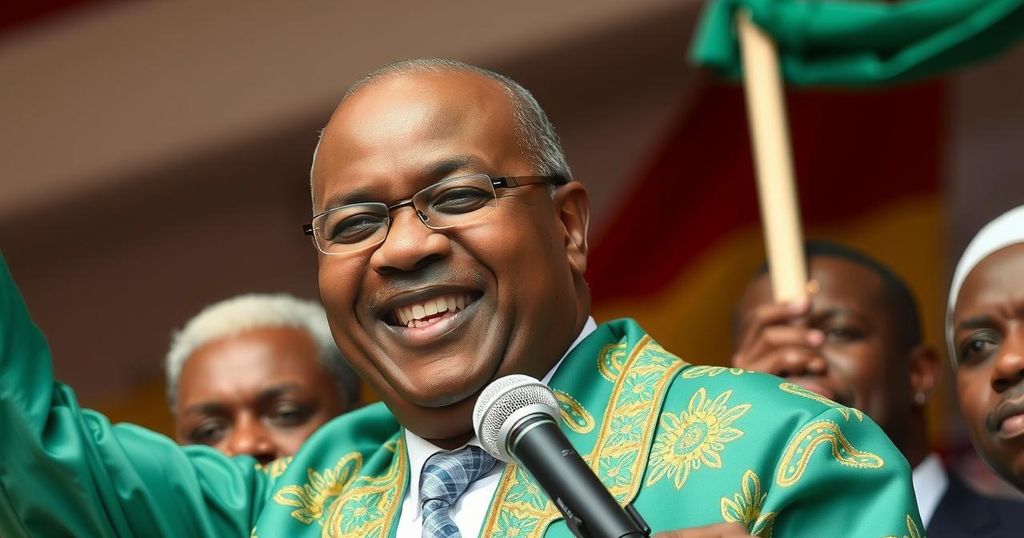Ghana’s former President John Mahama has won the presidential election after Vice President Mahamudu Bawumia conceded defeat. Mahama, representing the NDC, obtained 56.3 percent of the votes. His victory marks a historical precedent as he becomes the first president to reclaim the position after being voted out. Economic issues and corruption reform were central to his campaign, promising a ‘reset’ for the country in light of significant economic challenges.
Ghana’s former president, John Dramani Mahama, has emerged victorious in the recent presidential election, following the concession of his opponent, Vice President Mahamudu Bawumia. In a news conference, Bawumia stated, “The people of Ghana have spoken, the people have voted for change at this time and we respect it with all humility.” This election marks the end of the ruling New Patriotic Party’s (NPP) two-term governance under President Nana Akufo-Addo, amid significant economic challenges faced by the country, including high inflation and a debt default.
Mahama, representing the National Democratic Congress (NDC), reportedly secured 56.3 percent of the votes, while Bawumia obtained 41.3 percent. The NDC also achieved success in the parliamentary elections, confirming a shift in political power. Mahama expressed gratitude for the congratulatory call he received from Bawumia and celebrated his victory with supporters, who gathered at the party’s headquarters in Accra.
Throughout his campaign, Mahama pledged to “reset” Ghana, focusing on addressing economic recovery and appealing to the youth. His election is historically significant, as he becomes the first individual to regain the presidency since Ghana’s Fourth Republic was established in 1992. Economic issues dominated the electoral discourse, compounded by the $3 billion International Monetary Fund bailout prompted by the crisis of currency devaluation.
In addressing concerns about corruption, Mahama committed to establishing a new office dedicated to scrutinizing government procurement practices exceeding $5 million. However, his support for an anti-LGBTQ bill, recently passed by the Ghanaian parliament, has attracted international scrutiny. The official results of the election are expected to be announced by the Ghanaian Election Commission soon, further solidifying Mahama’s return to power.
The election outcomes in Ghana are particularly noteworthy considering the historical context of political stability in the country. Since the re-establishment of multi-party democracy in 1992, the two primary political entities, the New Patriotic Party (NPP) and the National Democratic Congress (NDC), have alternated in governance. The recent election results signal a potential shift in the electorate’s priorities, especially in light of the economic turmoil experienced under the NPP administration, which had been characterized by severe economic challenges. Mahama’s return is marked by promises to tackle corruption, economic revival, and reforms in governance, aiming for a renewed public trust.
In summary, John Dramani Mahama’s victory in Ghana’s latest presidential election signifies a decisive shift towards the national demand for change amidst pressing economic challenges and rising public discontent with the previous administration. As he embarks on this new term, Mahama’s commitments to combating corruption and revitalizing the economy will be under scrutiny. The implications of his policies, particularly regarding governance and societal issues, may shape Ghana’s political landscape considerably in the coming years.
Original Source: www.aljazeera.com







